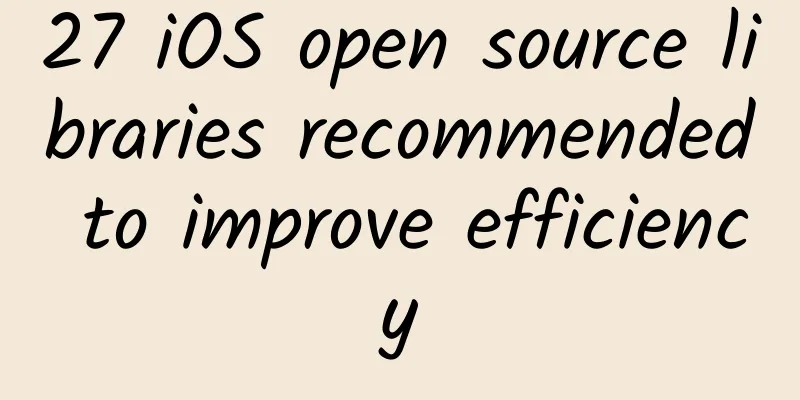APICloud's first full-featured integrated development tool is released, highlighting the concept of cloud integration

|
Recently, APICloud launched its first cloud-based, full-featured integrated development tool, APICloud Studio 2. In order to gain a deeper understanding of the features and advantages of this development tool, APICloud CTO Zou Da answered several core questions. 1. What kind of development tool is APICloud Studio 2? We have extracted three key words for APICloud Studio 2: "Atom", "cloud integration" and "full-function integration". First of all, APICloud Studio 2 is a development tool based on the Atom kernel. As we all know, Atom is a mainstream, open source front-end coding tool, and it is also very popular on Github. APICloud Studio 2 is built on the powerful ecological environment of Atom, and its plug-in and theme extension mechanism are fully retained to ensure the flexibility of the tool to meet the personalized needs of more developers as much as possible. Developers can install any favorite Atom theme or plug-in in Studio 2. Secondly, APICloud Studio 2 further elaborates on APICloud's "cloud-integrated" development concept. How to more elegantly integrate with APICloud's existing cloud services to effectively improve developers' development efficiency is the focus of thinking and optimization in the development of this tool. We work hard to polish the combination of cloud business and basic coding functions, and achieve the interconnection between Studio 2 and APICloud cloud in an almost seamless way. Previously created applications, application management, cloud compilation, module management, application configuration and other cloud functions can now be used directly in the development tool. Developers will no longer have to visit the APICloud website when using tools to develop applications. Again, compared to many previous development tools, APICloud Studio 2 is a truly full-featured integrated development tool. APICloud adheres to the strategy of supporting multiple development tools. Since its launch, it has successively launched development tool plug-ins such as Sublime Text, WebStorm, Eclipse, Atom, and independent CLI tools, all of which are open source. This time, Studio 2 integrates all development-related functions of APICloud cloud and end into one tool. In addition, some very practical functions have been added in debugging, such as breakpoint debugging of devices and real-time preview based on chromium. 2. Compared with many previous APICloud development tools, in what aspects is the upgrade of APICloud Studio 2? The core function of a development tool is to facilitate developers to code and debug, so the functional upgrade is mainly reflected in these two aspects. APICloud is committed to simplifying mobile application development technology, and an efficient, convenient and powerful development tool will help achieve this goal. Efficient coding speeds up development APICloud Studio 2 contains a large number of AUI front-end framework templates, such as lists, navigation, detail pages, timelines and other common functions. Developers can choose to use and generate them when creating applications. The tool also embeds a large number of components in AUI. Developers can right-click and insert a component at any time during the coding process without having to code again. · This time, the code hint function in the development tool is upgraded to not only hint the code related to keywords, but also display the documents or interfaces related to the code. This makes the code information more comprehensive and smarter. · Studio 2 embeds emmet code to quickly generate components, using CSS selector-like syntax to generate code, greatly improving the efficiency of writing HTML/CSS Self-developed local code time machine function, supports manual backup and automatic backup of local uncommitted code when syncing with the cloud · Support GIT-SVN code management; In order to balance the stability and convenience of code management services, Studio 2 uses GIT-SVN technology. Developers can use GIT clients at will to manage code on GIT or SVN servers. Convenient debugging, real-time preview Support compiling custom loaders · Upgraded WiFi real machine synchronization function, more automated Supports breakpoint debugging of iOS/Android remote devices, without VPN or fanqiang. It can quickly get the current variable value when coding, and accurately find the error point Support preview of device page effects; Support cloud compilation and local compilation Cloud service, one-click integration Module management: support directly checking or removing APICloud development modules · Application management: support setting application permissions, certificates, versions, modifying icon startup page and other information 3. What is the original intention and significance of developing APICloud Studio 2? The development process of APICloud over the years can be summarized in five keywords, representing five different development stages and goals. Cross-platform - The core advantage of the product is "using one set of code to develop both iOS and Android applications" and ensure the functionality, performance and experience of the application. Reuse - Module Store, a standardized platform function extension mechanism, provides a large number of standard encapsulated, functionally independent modules and services. Simple - Multiple development tool support strategy, providing all mainstream development tool plug-ins and open source, developers can use any of their favorite development tools to develop APICloud applications. Integration - SuperWebView accelerates the integration of Web and Native, and uses APICloud's products and services in native applications. Realization - APICloud customized platform is launched, allowing teams and enterprises without technical capabilities to realize their dream of developing mobile applications APICloud Studio 2 is a "realization" product. We want to realize the concept of cloud integration and make it easy for developers to develop apps, including making the tools for coding and debugging easier. As Atom becomes more and more mainstream as a front-end coding tool, many APICloud developers hope that the official can launch APICloud plug-ins related to Atom, so that developers can use Atom development tools to develop APICloud applications. Since November last year, APICloud has assembled a team of engineers who develop different tools and has successively released Atom plug-ins with different functions, including WiFi real-device synchronization, application management, code prompts, etc., and open sourced them on Github. Later, we decided to integrate the cloud services in APICloud and finally developed this cloud-integrated full-featured integrated development tool. APICloud Studio 2 is developed not only for developers, but also for our corporate customers. In the process of serving corporate customers, we found that they generally have their own management standards, and they are in urgent need of a unified, officially released integrated development tool. Now APICloud Studio 2 can meet the demands of corporate customers. |
<<: Do you know how Thread works?
Recommend
Content operation monthly salary from 3,000 to 30,000, just 5 steps!
As a content editor of a product, you will focus ...
Taking "Suning Store" as an example, a three-dimensional analysis of the O2O online operation of community convenience stores
According to the statistics bureau, in 2015, the ...
How to choose a live streaming platform? The most complete guide!
Thanks to the popularity of internet celebrities ...
An early employee of the Android team explains why Android is inferior to iOS
Recently, some mobile executives talked about how...
The most comprehensive guide to short video distribution on Tik Tok, Kuaishou, etc.!
In the Internet age, short videos are king. 2018 ...
Brand promotion: How to make data brands generate value!
Data is an asset. For online brand promotion , th...
Online traffic generation skills for training institutions!
Some time ago, I enrolled my daughter in a full-p...
What are the benefits of bidding hosting and agency operation?
There are also four major advantages of bidding h...
Blind box marketing, is it no longer working?
The blind box circle doesn’t seem to be peaceful ...
Advertising effect is not good? This is 80% of the reason!
I often hear advertisers complain that SEM promot...
2018 China New Media Trend Report! (Attached with download)
Growth is an eternal topic Half is fire, half is ...
Case analysis | Interpretation of activity operation and new customer acquisition
In order to continuously explore ways to activate...
Cook opened a Weibo account and the comments were bright
Around 3pm this afternoon, Apple CEO Tim Cook ope...
What should I do if I don’t know how to perform data analysis for information flow advertising optimization? The answer is here...
Daily life of an information flow advertising age...
"Light" talk about the design concept of H5 mini games
I. Introduction Since my main job recently is to ...









